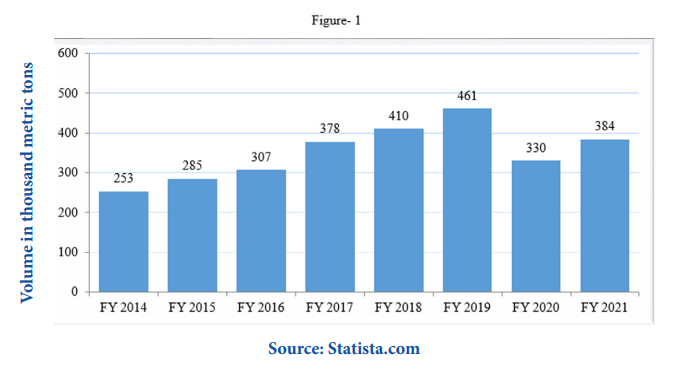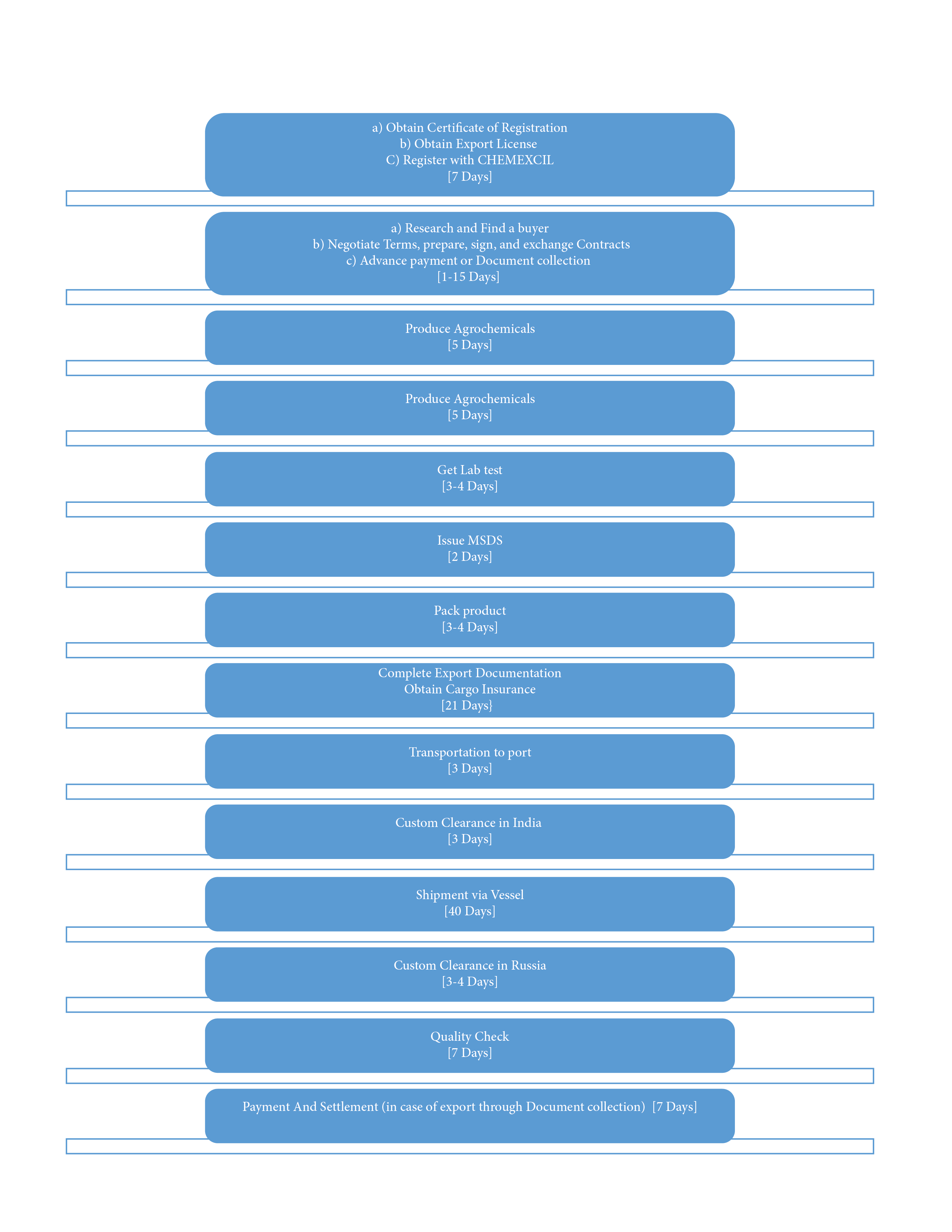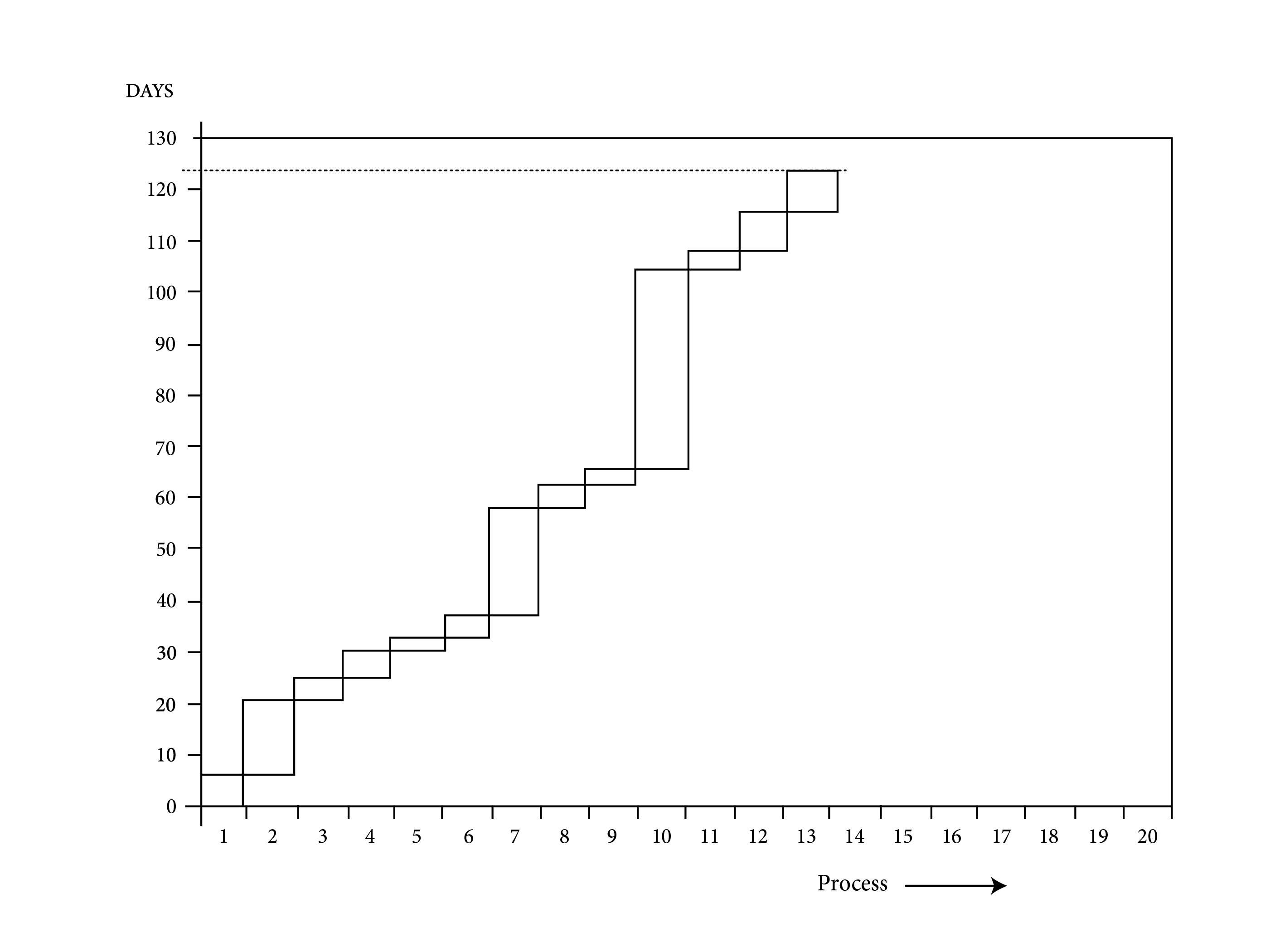Regulations for Agrochemical Export
The Insecticides Act of 1968 regulates the production, distribution, and application of
agrochemicals in India. This law is administered by the Ministry of Agriculture, Department of
Agriculture, and Cooperation. The act enforces mandatory registration, quality requirements,
and fines for violations like misbranding and inferior pesticides. It is implemented by state
governments. The Central Insecticides Board and the Registration Committee control different
facets of agrochemical use. The act's shortcomings include its primary focus on insecticides,
limited state jurisdiction, and a failure to expressly address pesticide-related environmental risks
and dangers to biodiversity
Pesticide Management Bill of 2017: To replace the Insecticides Act, there is a bill called the
Pesticide Management Bill. It aims to control the import, production, sale, and use of pesticides,
with an emphasis on their efficacy and safety. The measure puts a strong emphasis on avoiding
pesticide residue contamination of agricultural products and encouraging safe usage. Penalties for
violations, such as the sale of fake pesticides, have significantly increased. The law permits states
to impose a 6-month pesticide ban and provides mechanisms for compensating impacted farmers.
Export volume of agrochemicals by India from the financial year 2014–2021
Figure 1 shows that India has witnessed consistent growth in the volume of agrochemical exports
since 2014 and successfully exported a record-breaking 461 thousand metric tons of agrochemicals
in the fiscal year 2019, the greatest amount in the previous ten years. According to the statistics,
over 330 thousand metric tons of agrochemicals were exported from India to other nations in
fiscal year 2020, a massive 28% decline from the prior year. The United States and China's ongoing
trade dispute and the impact of the COVID-19 pandemic on the supply chain prompted a decline
in export volume.

Procedures for exporting Agrochemicals from India to Russia
The process of exporting agrochemicals to Russia starts with obtaining a Certification of
Registration and export Licence, finding a buyer, obtaining an order, and then activities of
production, document preparation, transportation, and customs clearance. Figure 1 illustrates the
steps followed in the process of exporting agrochemicals from India to Russia.

Obtain Certificate of Registration
Under the terms of the Insecticides Act, registration is necessary before manufacturing or
importing pesticides for export. Because importing nations frequently need this document to
confirm that the agrochemicals requested for import are legally approved for manufacture/export
in the country of export, companies/firms exporting agrochemicals are also required to provide
the "Certificate of Registration."
Obtain Export License
Obtaining an export license better known as IEC (Import Export Code) is an essential requirement
before starting the process of exporting agrochemicals from India to Russia. The Indian Ministry
of Commerce and Industry's Directorate General of Foreign Trade (DGFT) is the agency in charge
of providing this license. This vital document serves as legal permission, allowing the exporter to
take part in activities related to international trade. It ensures that the export complies with all legal
requirements by acting as a declaration of compliance with Indian export laws and regulations.
Register with CHEMEXCIL
The Indian Chemical Export Promotion Council is referred to as CHEMEXCIL. Although
membership in CHEMEXCIL is not mandatory, it might be advantageous for connecting with
other exporters and gaining access to government assistance.
Research and Find a buyer
A successful export endeavor is built on thorough market research. Before you start exporting, it
is important to do your research and identify potential buyers for your products. It is crucial to get
a thorough understanding of demand trends, consumer preferences, and prospective competitors
before entering the Russian market. For this research, the Indian Ministry of Commerce and
Industry frequently offers helpful trade information and insights. You may make sure that your
product has a market by finding potential customers or distributors. You can also do this by
attending trade shows, networking with industry professionals, and researching through online
Platforms.
Negotiate Terms, prepare, sign, and exchange Contracts
Negotiations start as soon as you find a possible buyer in Russia. This phase involves in-depth
conversations on a range of trade-related topics, including pricing, quantity, quality requirements,
delivery schedules, and payment options. The resulting agreement acts as the transaction's legal
basis. As this document will serve as the roadmap for the entire export process, it is essential to
make sure the terms are mutually acceptable. To reduce misunderstandings and disagreements,
the contract must be precise and clear.
Advance payment or Document collection
The Russian buyer transfers the agreed-upon funds to the Indian exporter before the agrochemicals
are dispatched in the case of advance payment. In a documentary collection, the exporter sends
his or her bank the necessary shipping documents (such as Shipping bill, bills of lading, invoices,
and other necessary paperwork), and the bank of the buyer receives them. In order to ensure
that the buyer only receives the items when payment is confirmed, the buyer's bank releases the
documentation to the buyer adhering to payment.
Produce Agrochemicals
This phase entails producing the agrochemical goods in accordance with the details and quantities specified in the sales contract. To make sure the items are safe to use and satisfy the
necessary requirements, quality control procedures are put in place.
Get Lab test
Agrochemical products are put through extensive laboratory testing to determine their quality,
purity, and adherence to legal requirements. These tests attest to the items' usability and compliance
with the demands of the Russian market.
Issue a Material Safety Data Sheet (MSDS)
An MSDS is a comprehensive document that details the characteristics, risks, recommended
handling practices, and emergency protocols for agrochemical products. It is a crucial piece of
paper for guaranteeing safety and legal compliance.
Pack product
The agrochemical items are securely packed and bundled to avoid damage while being transported.
Additionally, packaging must adhere to foreign shipping laws, particularly when handling
hazardous items.
Complete Export Documentation
The completion of export documentation is a crucial step in the export procedure for
agrochemicals. It requires cautiously putting together the necessary papers, including commercial
invoices, certificates of origin, packing lists, bills of lading, and any other paperwork that Russian
and Indian customs officials may require. These records enable customs clearance, guarantee
adherence to trade laws, and serve as a formal record of the transaction. Precision is essential
since mistakes or omissions might cause delays or difficulties at customs inspections. In addition
to legalizing the export, proper documentation streamlines logistics and speeds up the shipment
of agrochemicals from India to Russia.
Obtain Cargo Insurance
In order to protect against the possibility of damage or loss during transit, cargo insurance is
bought. This insurance offers financial protection in the event of unanticipated occurrences
during transportation, such as accidents or theft.
Transportation to port
Transport of the packed agrochemicals to the specified port for export occurs from the
manufacturing site. This may require using the road, the rail, or a combination of transit modes,
depending on logistics.
Custom Clearance in India
The Indian Customs Department oversees the customs clearance procedure in India. It involves
filling in the necessary paperwork and paying any export taxes and tariffs that apply to the cargo.
This procedure is governed by the Customs Act of 1962 and other pertinent regulations. Adherence
to these rules is crucial to avoid any legal issues or delays since properly cleared customs to ensure
that the agrochemicals are lawfully permitted to leave the nation.
Shipment via Vessel
To be shipped to Russia, the agrochemical products must be loaded onto a ship. This calls for
careful planning of shipments, container loading, and preparation of the cargo for sea travel.
Custom Clearance in Russia
To ensure adherence to Russian import laws, customs clearance procedures are carried out upon
arrival in Russia. Authorities in charge of customs check that the documentation matches the
goods and may levy import charges and taxes.
Quality Check
To ensure that the imported agrochemicals fulfil the agreed-upon quality criteria, quality
inspections may be carried out in Russia. To ensure the quality and safety of the product, this may
require sampling and testing.
Payment And Settlement (in case of export through Document collection)
If the export was executed through documentary collection, payment is processed as per the
agreed terms. Settlement typically involves the buyer's bank confirming payment to the exporter's
bank before the goods are released to the buyer.
Documentation
Table – 1 Documents required to export Agrochemicals to Russia
|
1
|
PAN Card
|
|
12
|
Import Export Code
|
6-7
Days
|
|
2
|
Identity Proof
|
|
13
|
Acknowledgment Receipt of Income Tax Forms
|
3-4
days
|
|
3
|
Address Proof of the
|
|
14
|
Form No. 15 CA (Sea Rule 37BB)
|
3-4
days
|
|
4
|
Performa Invoice
|
1 Days
|
15
|
Form No. 15 CB (Sea Rule 37BB)
|
3-4
days
|
|
5
|
Commercial Invoice
|
1 Days
|
16
|
Request Letter for Clean Outward
|
1 days
|
|
6
|
Bill of Lading
|
1 Days
|
17
|
Remittance (with Form A2 and Proforma Invoice)
|
2 Days
|
|
7
|
|
1-2
Days
|
18
|
Material Safety Data Sheet (MSDS)
|
2 Days
|
|
8
|
Packing List
|
1 Days
|
19
|
|
21 Days
|
|
9
|
|
2-3
Days
|
20
|
|
2 Days
|
|
10
|
-
istration
|
|
21
|
|
5-10
Days
|
|
11
|
Shipping Bill
|
2 Days
|
|
|
|
Export’s personal documents
PAN Card
Identity Proof, in the form of an Aadhar Card, Driving License, Voter ID, etc
Address Proof of the Registered Office, in the form of Utility Bills and Sale Deed or Rent
Agreement
Commercial documents
Performa Invoice: - A document specifying the details of the agrochemicals, their quantities,
prices, and terms of sale between the exporter and the importer.
Commercial Invoice: - A comprehensive invoice containing detailed information about the
agrochemicals, including the terms of trade and payment.
Bill of Lading: - A legal document issued by the shipping carrier, acknowledging the receipt of
the agrochemicals for shipment and serving as evidence of the contract of carriage.
Certificate of Origin: - A document declaring the country of origin of the agrochemicals,
essential for availing trade benefits and determining import duties.
Packing List: - A detailed list specifying the contents, quantities, and packaging of the
agrochemicals being shipped.
Insurance Certificate
Regulatory Documents
Certificate of GST Registration
Shipping Bill: - A customs document declaring the agrochemicals to be exported, providing
essential information to the customs authorities.
Import Export Code
Acknowledgment Receipt of Income Tax Forms: Proof of submission of income tax forms,
ensuring compliance with tax regulations during the export process.
Form No. 15 CA (Sea Rule 37BB): A declaration form for foreign remittances, ensuring tax
compliance on the payment made for the agrochemicals.
Form No. 15 CB (Sea Rule 37BB): A certificate issued by a chartered accountant, verifying the
details of the remittance and compliance with tax laws.
Request Letter for Clean Outward: A formal request to customs for allowing the shipment of the
agrochemicals after ensuring compliance with all necessary export requirements.
Remittance (with Form A2 and Proforma Invoice): Documentation of the payment for the
agrochemicals accompanied by Form A2 (for foreign remittance) and Proforma Invoice to
facilitate the transaction.
Documents required especially for Agrochemicals
Material Safety Data Sheet (MSDS): - A document providing vital safety information about the
hazardous characteristics of the agrochemicals ensuring safe handling during transportation.
IIP UN Mark Certificate: - It is primarily known as the UN Certificate, which is issued by the
Indian Institute of Packaging (IIP) for packages containing hazardous or dangerous goods for
transportation. It is issued only after conducting tests of the package samples as per the UN
Standards for transportation.
Certificate of Analysis (COA): - A Certificate of Analysis is a document that manufacturers
produce that verifies the product they manufactured conforms to their customer’s requirement, it
verifies the composition and purity of the agrochemical. It is typically issued by the manufacturer
of the product.
Certificate of Registration: - Under the terms of the Insecticides Act, the manufacture or import
of pesticides for export must be registered. The "Certificate of Registration" is also required by the
businesses/firms exporting pesticides because importing nations typically want this document to
confirm that the pesticide being proposed for import is lawfully licensed for manufacture/import
in the country of export.
An exporter usually needs to contact at least nine institutions in order to collect the required
paperwork and secure the shipment of the agrochemicals to their destination in order to export
them from India to Russia. These organizations are
| 1 |
The Directorate General of Foreign Trade (DGFT) |
| 2 |
The Indian Chamber of Commerce |
| 3 |
The Indian Institute of Packaging (IIP) |
| 4 |
Laboratory |
| 5 |
The freight forwarder |
| 6 |
The Shipping Company |
| 7 |
The Customs Authorities |
| 8 |
The Bank |
| 9 |
The Insurance company |
Time Chart :
The time factor is also an important determinant of the volume of trade and of competitiveness.
In the process of exporting Agrochemicals to Russia, the exporter must spend time in visiting
several institutions.
obtaining licenses from the DGFT takes 7 days and the documentation process takes 7 to 10 days,
with the exception of the IIP certificate, which is provided by the India Institute of Packaging and
takes 21 days to arrive. Production time of Agrochemicals may change Depending on the order
volume and the manufacturing unit's capacity.
At least 122 days are required to complete the process of exporting vegetable ghee from Nepal to
India (minimum 122 days and maximum 135 days). Refer to Figure 2
These timeframes are estimations because there is typically no set time for executing a particular
task and the amount of time needed for each activity varies on how quickly the individual can
complete it
Figure 2: Time procedure chart of Agrochemicals exports to Russia

Obtain Certificate of Registration, Obtain Export Licence & Register with CHEMEXCIL
Research and Find a buyer, Negotiate Terms, prepare, sign, and exchange Contracts &
Advance payment or Document collection
Produce Agrochemicals
Get Lab test
Issue a Material Safety Data Sheet (MSDS):
Pack product
Complete Export Documentation
Obtain Cargo Insurance
Transportation to port
Custom Clearance in India
Shipment via Vessel
Custom Clearance in Russia
Quality Check
Payment And Settlement (in case of export through Document collection)